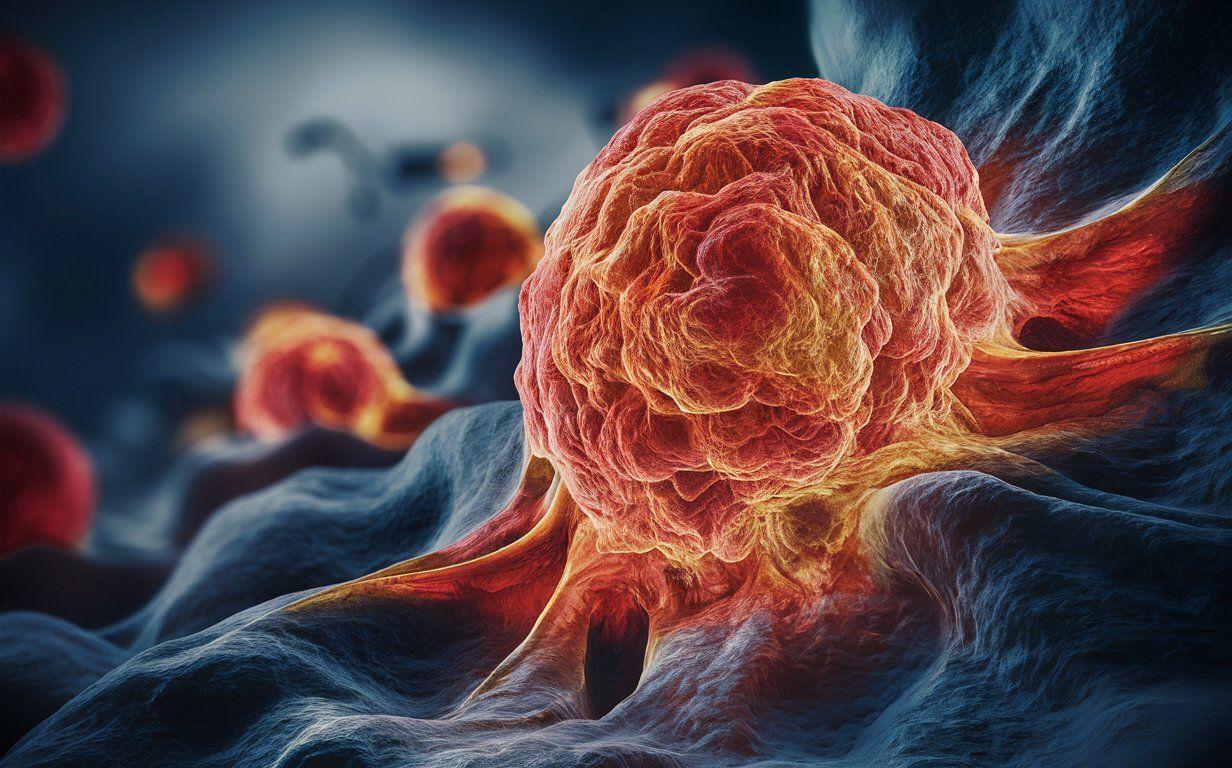Major breakthrough in pancreatic cancer treatment 🧪
Published by Cédric,
Article author: Cédric DEPOND
Source: Cancer Research
Other Languages: FR, DE, ES, PT
Article author: Cédric DEPOND
Source: Cancer Research
Other Languages: FR, DE, ES, PT
Follow us on Google News (click on ☆)

This discovery opens up new perspectives for the development of targeted therapies. With one of the lowest survival rates, pancreatic cancer urgently requires solutions. The enzyme Mical2, involved in the growth and spread of these tumors, could well become a prime target for future drugs.
The key role of Mical2
The enzyme Mical2, normally involved in cell morphology and movement, is overproduced in pancreatic tumors. Researchers have observed that its activity promotes tumor growth and the formation of metastases.
Patients whose cancer cells express low levels of Mical2 survive twice as long. This enzyme therefore seems directly linked to the aggressiveness of the disease, offering a promising avenue for new treatments.
Mical2 and the Kras protein
The Kras protein, known for stimulating the growth of cancer cells, sees its activity reduced when Mical2 is deactivated. Without Mical2, Kras can no longer draw the nutrients necessary for tumor proliferation.
This interaction between Mical2 and Kras partly explains why tumors become so resistant. By targeting Mical2, researchers hope to block this key mechanism of cancer progression.
Towards new treatments
Drugs inhibiting enzymes similar to Mical2 already exist for other diseases. Researchers are now exploring their potential against pancreatic cancer. Professor Andrew Lowy, co-author of the study, emphasizes that this approach could revolutionize the treatment of this cancer. Preclinical trials are underway to identify the most effective molecules.
The discovery of Mical2 offers a new perspective for improving patient prognosis. The next steps will involve validating these results and developing targeted therapies. This scientific breakthrough could mark a turning point in the fight against this dreaded cancer.
What is the Kras protein?
The Kras protein is a key molecule in the regulation of cell growth and division. It acts as a molecular switch, activating signaling pathways that stimulate cell proliferation. Under normal conditions, it is essential for the development and maintenance of tissues.
In many cancers, including pancreatic cancer, Kras undergoes mutations that make it hyperactive. This permanent activation leads to uncontrolled cell multiplication, promoting tumor formation. Kras is thus considered a major driver of carcinogenesis.
The Kras protein interacts with other molecules, such as the enzyme Mical2, to support tumor growth. It allows cancer cells to capture nutrients and resist programmed cell death mechanisms. Its inhibition is therefore a promising therapeutic target.
However, targeting Kras directly has proven difficult due to its complex structure. Researchers are now exploring indirect approaches, such as blocking its molecular partners, to limit its activity and slow cancer progression.